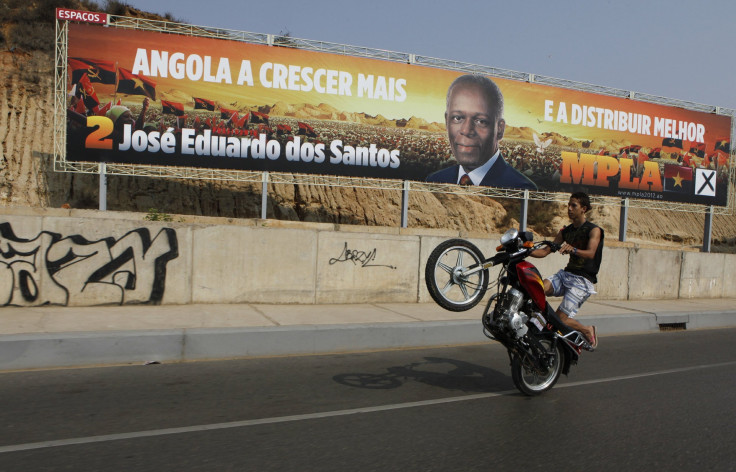Angola Maneuvers Through Pitfalls To Legitimize National Currency

To hear it from critics of recent monetary interventions into the global economy, making money is as easy for a government to do as buying some fancy ink and paper, hitting the “Print” button in some obscure central bank computer and making sure the reams of new banknotes make it into the vaults of the national Treasury safely.
But as central bankers and lawmakers in the East African nation of Angola have shown recently, things are a bit more complicated than that.
On Monday, Bloomberg News reported on the latest action within that country to shore up the use and legitimacy of its currency -- the Angolan kwanza -- vis a vis widely circulated U.S. dollars. Officially, it’s a law to regulate the oil industry, which makes up more than 60 percent of the economy and accounts for about 80 percent of tax revenue, by forcing foreign companies doing business in the country to pay suppliers from accounts with local banks.
But in reality, the main point of the law has nothing to do with the oil business but is part of a larger trend by resource-rich African countries to shore up the use of their national currencies. Similar initiatives have taken root in Ghana, Mozambique and Zambia, according the Financial Times.
According to an Economist Intelligence Unit report cited in the news article, the law will likely funnel some $10 billion dollars through the Angolan economy, a huge amount for the country’s banking system.
“It is great news in terms of giving local banks a new source of liquidity to fund private- and public-sector investment,” Kim Polley, an executive director at consultants Africa Practice in Johannesburg, told Bloomberg.
It seems like a win-win-win proposition: The national banking system is strengthened, use of kwanzas to pay for local debts is legitimized, and the local economy is flooded with a base of capital to spur investment and development in areas outside of oil.
But there are pitfalls. Many local banks, which might depend on manual processing of transactions, for example, might not be able to keep up with the just-in-time cashflow systems used by the foreign oil majors.
“This is a concern from the oil sector companies as it will be a big change for the banking system,” Joao Fonseca, executive director at Banco Angolano de Investimentos in capital city Luanda, also told Bloomberg.
Also at issue: The influx of cash into a system not used to the flood of money could lead to “excessive lending and inflationary pressures,” the Economist report is cited as saying.
This latter problem will have to be closely managed by the Angolan central bank, which has been attempting to keep inflation under 10 percent, achieving that goal for the first time in August when government statistics showed the annualized rate fell to 9.87 percent. The country’s Treasury has also been at the forefront of attempting to tamp down inflation, rolling out a plan earlier this year to introduce small-denomination coinage, which should help in that regard.
Indeed, it’s a high-wire act for those policymakers: using their coercive tools to force people and companies to use the kwanza on the one hand, while making sure, on the other hand, their policies don’t lead to currency killing hyperinflation or black market trade.
They seem to be doing fairly well in that regard. According to Bloomberg, kwanzas trade in the unsanctioned money markets of Luanda at a rate of 100 per dollar, only slightly off the official exchange rate of 95.42 Akz per U.S. dollar.
"The results reached so far tell us that we are on the right track," Jose de Lima Massano, the country’s central bank chief, told a business conference in early September, according to Reuters.
That’s better than what most central bankers in developed countries can claim.
© Copyright IBTimes 2024. All rights reserved.




















